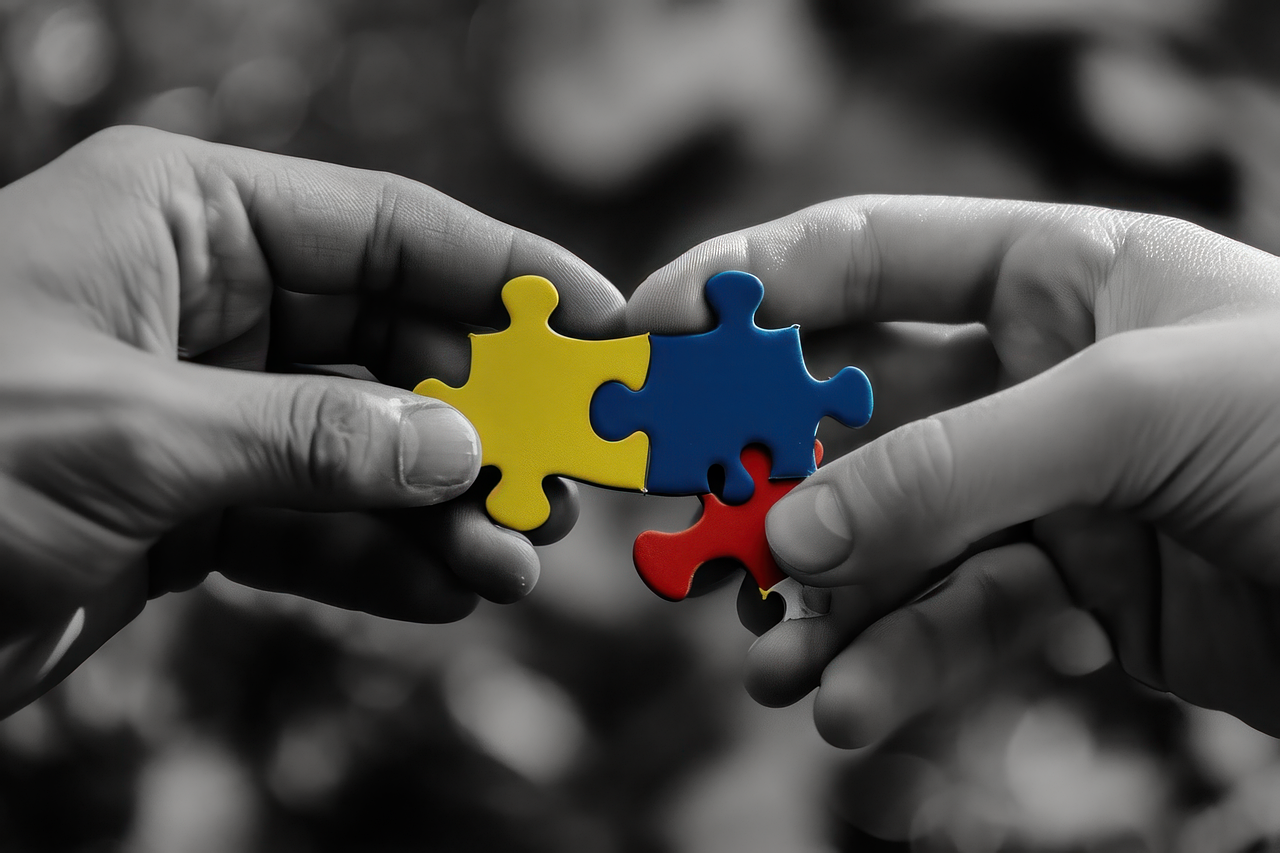This blog aims to explore how autism is experienced and understood specific to our South Asian community. This is, by no means, a criticism but an acknowledgement of what challenges are present and how to navigate these to support autistic people in South Asian society and those who are of South Asian heritage.
Autism is defined as a neurodevelopment condition that varies in severity, with characteristics being identified in early childhood. This lifelong condition is understood to hold difficulties in communication, social interactions or repetitive behaviours and thoughts. People who are autistic are not ill nor do they have a disease, but may act in a different manner to others. It is something that an individual is born with, not something contracted or something that occurs later on in life. As it is not a medical condition, there is no notion of there being a ‘cure’ or something that requires treatment. An autism diagnosis does not limit a person’s capacity to live a healthy and fulfilling life; autistic people are able to thrive in the community when given or receive the right level of support. To date, there is little understood as to what causes autism.
Autism is assessed by qualified clinicians with the relevant training. Appointments aim to gather information from varying sources and are spread over some time. The individual’s history, current challenges, characteristics in line with autism, and family history are explored. The diagnostic criteria based on the ADOS-2 and ADI-R are the recommended standardised assessment tools for autism.
Now that we have explored the overall understanding of autism, we shift our attention on what barriers are present in the South Asian community and to those of South Asian heritage.
Lack of information & stigma; A mark of disgrace defines stigma. South Asian culture is heavily focused on ‘what others will think’ and the utmost effort is given on avoiding shame, sometimes at any cost. So, having a label of something different to the masses, may equate to us never talking about autism, never learning more about autism. Worries and concerns about ‘our place in society, what will people think’ stops us from acknowledging that a loved one may need some help. Fear of this leads to misinterpreting what autism is because we don’t talk of it or ask questions on autism. Being different from the masses because there may be a label or a diagnosis attached to our loved one, becomes something wholly inaccurate and incorrect, because we may say ‘oh they just need to do this or that’ or excuses such as ‘oh they didn’t sleep much so that’s why they’re acting this way’. As a result, this may be passed to the next generation and so on because that is all we know how to manage something like this. Next, this ignorance and acceptance of myths associated with autism needs to be tackled. Those who are autistic in our culture may struggle with a sense of self and place in society more than they already do, without knowledge about and help for autism. It affects every member of the family because they simply don’t have the facts. Stigma, disgrace, shame, little to no understanding – these let us all down, but these aren’t more important than you or your autistic loved one. So, let’s not sacrifice ourselves or our loved ones from fear of what others may think.
Consequences; Without knowing, without talking about it and discussing it in our homes, with our children, with our friends, the most significant consequence is that South Asian children, adults, teenagers, and elders become more isolated, more alone. If language barriers are hard on a routine day, it becomes even harder when we don’t talk which adds to further isolation. Another consequence is that we remain in a state of denial, dismissing things as ‘it’s ok’ or ‘nothing’s happening’, building on the pretence. Home life, relationships, connections become or remain hard and difficult. Hope is also lost, hope that things can or will improve also becomes a far away dream. Whereas hope and sometimes faith, is what gets us through something difficult.
I suppose this is a plea or it’s a loud voice; don’t let these challenges be a barrier anymore. We know so much, we have done so much, we now say it is time to break these misconceptions and notions. If we don’t, tragically many will lose out on living a fulfilling life when it doesn’t need to be that way.
If you believe you or a loved one (of any age) may have neurodevelopmental needs and needs to be assessed for autism, there is no shame or judgement in asking for help on the next steps, that much is clear from this blog. The first step is to make an appointment with your GP and share why you think an autism assessment may be needed and request what your next step can be. You may be referred to an NHS specialist team that can support you or your loved one. Be mindful of extensive waiting lists and times. For children and under 18s, CAMHS (children and adolescents mental health service) could support you and for adults it would be the adult mental health services. Alternatively, the private pathway bypasses these waiting times and you can choose to pay for an autism assessment. For those in academia (schools, universities), it is the institution’s responsibility to make adjustments and adapt to your needs so you can excel as much as you can. Charities like the National Autism Society (www.autism.org.uk) and Ambitious About Autism (www.ambitiousaboutautism.org.uk) and many others help children, adults and families. Charities such as these know the challenges South Asians face and include us in their support.
We are all different in different ways, but speaking up and asking for help is the definition of bravery (in my opinion), so if you have a question – ask it proudly!

